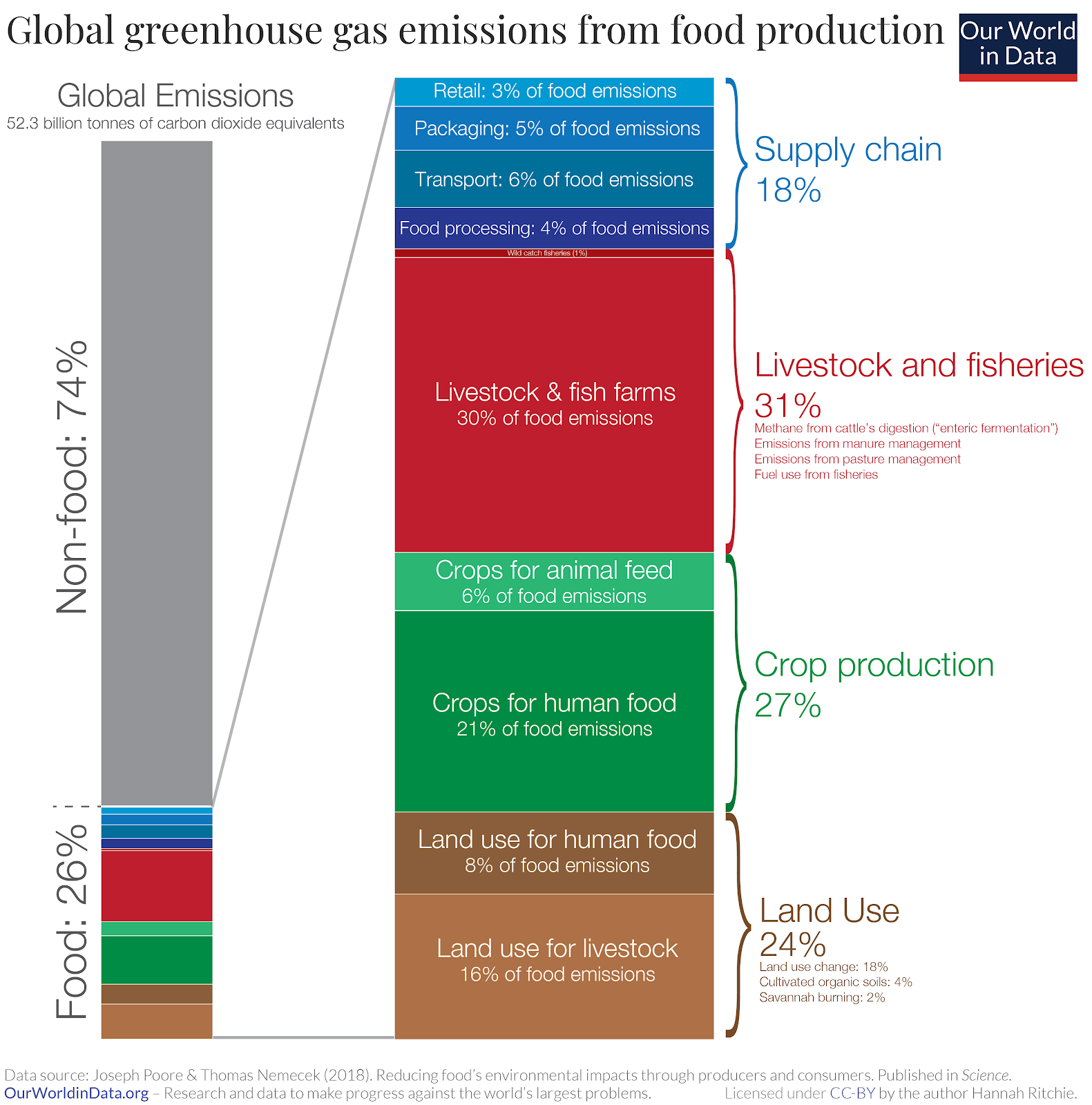Food production’s contribution to climate change
2/8/2021
The global food system contributes heavily to climate change, and does so at almost every point from farm to table. Overall, food is responsible for 26 percent of global greenhouse gas emissions. The single biggest contributor to emissions in food production is in livestocks and fisheries, with sources like cattle digestive methane and manure management adding up to 31 percent of emissions from food. However, crop production and land use are each responsible for an additional quarter of emissions each, and once again livestock are a big reason why: the crops they eat and the land they take are about half the emissions from these categories. The remainder of emissions come from supply chain factors like packaging and transporting.

Food waste’s contribution to climate change
Considering that a large portion of food that is produced ends up wasted, it may be unsurprising that food waste also contributes heavily to climate change. In fact, food waste is responsible for 11 percent of all global greenhouse gas emissions, which, if food waste were a country, would make it the world’s third-largest emitter. All that food waste means that much more land and that much more shipping costs, only for the food to not get eaten. Worse, that food has to then go somewhere else, and throwing out food requires even more energy. This is why a coalition of climate change experts consider reducing food waste to be the third most important action item to slow down climate change.Solutions
Luckily, there are a number of proven solutions to this crisis. First, given that over half of greenhouse gas emissions come from raising animals alone, consumers can switch to a more plant-based diet. One Swedish study found that while meat represents only 3.5 percent of food mass discarded, it still resulted in 29 percent of the overall carbon emissions. Reduced demand for animal products means that farmers won’t have to raise so many methane-producing cows or cut down as many forests to create space to raise cattle. Once that food is in hand though, it is also crucial to compost what can be. Composting cuts the greenhouse gas emissions of throwing away food to just 14 percent of an equivalent disposal in a landfill. Some countries, like the UK and Denmark, are starting to implement policies to further encourage composting.Finally, it is important to shop smarter in the first place. In a household setting, this could mean planning out recipes for the week before going shopping so that extra head of broccoli doesn’t grow moldy in the back of the fridge before it gets used. In a restaurant, this could mean implementing a product like DeWaste Kitchen. DeWaste Kitchen allows restaurant managers to track the food waste in their kitchen in order to understand potential sources of inefficiency, with the potential to cut food waste in half. Implementing a product like DeWaste Kitchen will save restaurants time and money and help the planet at the same time.
Sources:
https://ourworldindata.org/food-ghg-emissions
https://yaleclimateconnections.org/2019/05/food-waste-has-crucial-climate-impacts/
https://www.bbc.com/future/article/20200224-how-cutting-your-food-waste-can-help-the-climate
https://de-waste.com/
Be the first to learn about the latest DeWaste news.
